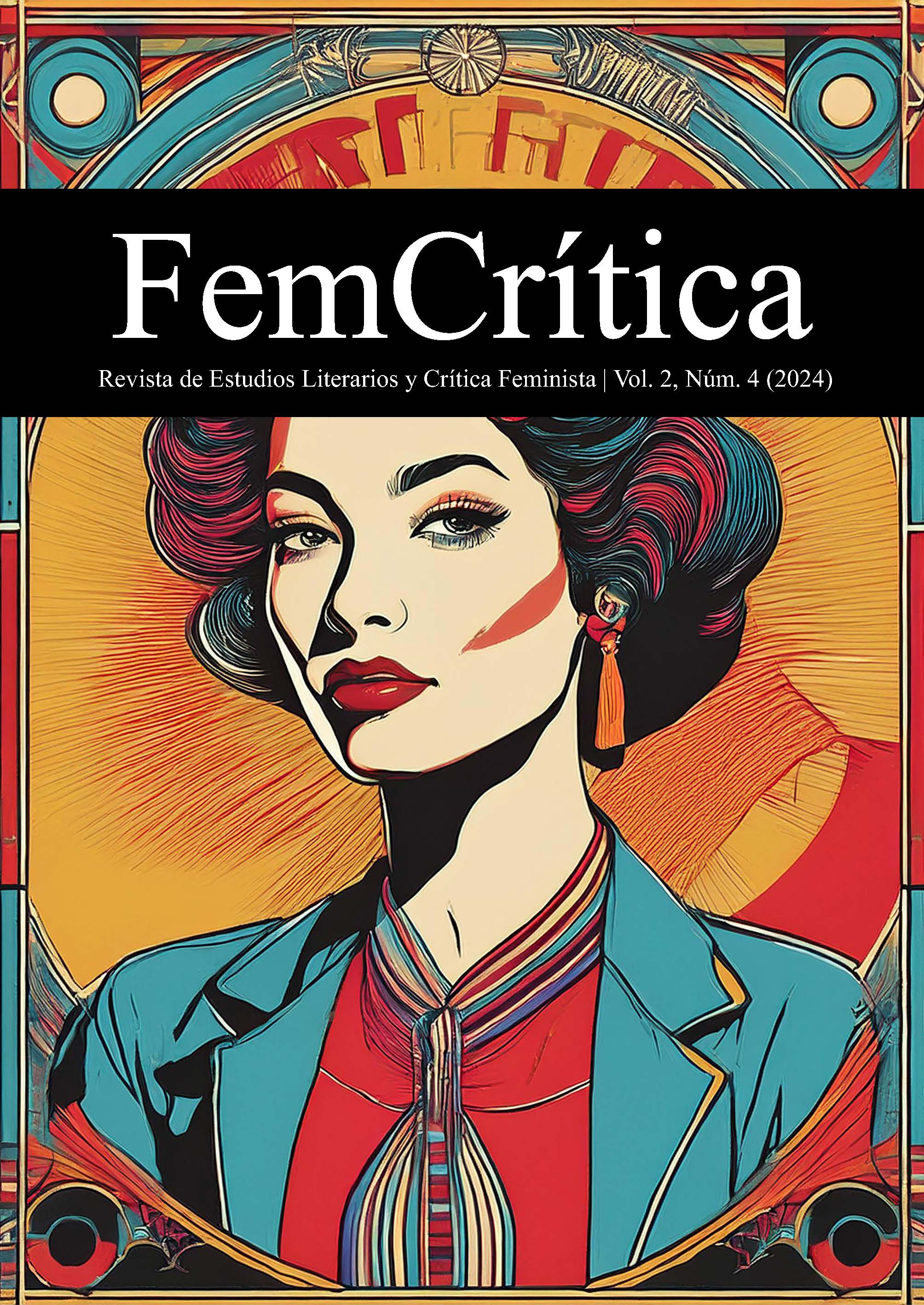REPRESENTACIÓN DE IDENTIDADES QUEER EN NOVELAS DE APRENDIZAJE AMBIENTADAS EN NIGERIA
Palabras clave:
identidades queer, Nigeria, vínculos horizontales, queerfobia, novelas de aprendizajeResumen
Este artículo explora las representaciones de identidades queer en novelas de aprendizaje ambientadas en Nigeria y escritas en inglés por una nueva ola de autoras contemporáneas en la diáspora. Identificados a lo largo del análisis bajo el acrónimo QTPOC (Queer and Trans People of Colour), los personajes protagonistas de When We Speak of Nothing (2017), de Olumide Popoola, y An Ordinary Wonder (2021), de Buki Papillon, exponen cómo sus subjetividades surgen a través de las intersecciones de género, sexualidad y raza. La base para esta investigación radica en la necesidad de reflexionar críticamente sobre como las políticas de exclusión continúan afectando a las comunidades queer en el contexto Nigeriano. Si bien la representación de actitudes sesgadas sigue siendo una característica central de las novelas seleccionadas, este trabajo destaca el potencial de los vínculos horizontales y las relaciones de solidaridad para consolidar a las voces queer. El interés de Popoola y Papillon en reflejar el desarrollo de una sensibilidad empoderada confirma que esta generación de autoras emplea la literatura como una herramienta pedagógica para contrarrestar la queerfobia y defender los derechos queer en Nigeria y más allá.
Descargas
Citas
Alimi, N. F. (2017). Negotiating Identity: Sexuality and Gender in Olumide Popoola’s When We Speak of Nothing (2017). IAFOR Journal of Literature and Librarianship, 8(1), 17-28. https://doi.org/10.22492/ijl.8.1.01
Azuah, U. N. (2005). The Emerging Lesbian Voice in Nigerian Feminist Literature. In F. Veit-Wild & D. Naguschewski (Eds.), Body, Sexuality and Gender: Versions and Subversions in African Literatures (1st ed., pp. 129-170). Rodopi.
Bryce, J. (2008). “Half and Half Children”: Third-Generation Women Writers and the New Nigerian Novel. Research in African Literatures, 39(2), 49-67. https://doi.org/10.2979/ral.2008.39.2.49
Davis, S. (2023). Queer and Trans People of Colour in the UK: Possibilities for Intersectional Richness. Routledge.
Green-Simms, L. (2016). The Emergent Queer: Homosexuality and Nigerian Fiction in 21st Century. Research in African Literatures, 47(2), 139-161. https://doi.org/10.2979/reseafrilite.47.2.09
Murphy, E. R. (2012). An Interview with Sefi Atta. Research in African Literatures, 43(3), 106-114. https://doi.org/10.2979/reseafrilite.43.3.106
Nwakanma, O. (2008). Metonymic Eruptions: Igbo Novelists, the Narrative of the Nation, and New Developments in the Contemporary Nigerian Novel. Research in African Literatures, 39(2), 1-14. https://doi.org/10.2979/ral.2008.39.2.1
Ogunyemi, C. O. (1996). African Wo/Nan Palava: The Nigerian Novel by Women. University of Chicago Press.
Osinubi, T. A. (2016). Queer Prolepsis and the Sexual Commons: An Introduction. Research in African Literatures, 47(2), vii–xxiii. https://doi.org/10.2979/reseafrilite.47.2.01
Papillon, B. (2021). An Ordinary Wonder. Dialogue Books.
Popoola, P. (2017). When We Speak of Nothing. Cassava Republic Press.
Sullivan, N. (2003). A Critical Introduction to Queer Theory. New York University Press.

Descargas
Publicado
Cómo citar
Número
Sección
Licencia
Derechos de autor 2025 María Durán Eusebio

Esta obra está bajo una licencia internacional Creative Commons Atribución-NoComercial-SinDerivadas 4.0.





